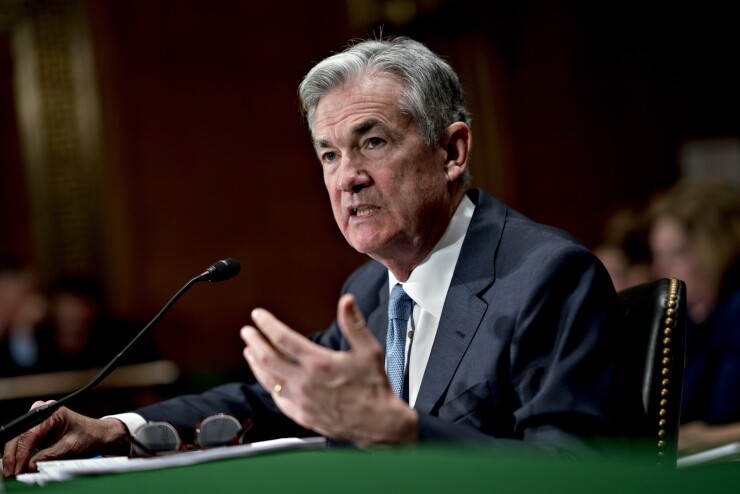
Federal Reserve Chair Jerome Powell on Tuesday mirrored on the central financial institution’s aggressive asset purchases throughout the COVID-19 pandemic, acknowledging it could have been an overreaction.
Speaking on the National Association for Business Economics convention, Powell stated the Fed probably “ought to’ve stopped asset purchases sooner,” particularly pointing to mortgage-backed securities.
Powell acknowledged earlier skepticism from market watchers who questioned the inclusion of company MBS purchases throughout the pandemic restoration, however he stated the tempo of the central financial institution’s buy of MBS and U.S. Treasury securities was set “with a purpose to keep away from a pointy unwelcome tightening of monetary circumstances.” He added that it’s “difficult to find out” to what extent the Fed’s MBS purchases disproportionately affected housing market circumstances throughout that interval.
“Many components have an effect on the mortgage market, and lots of components past the mortgage market have an effect on provide and demand within the broader housing market,” Powell stated.
At the onset of the pandemic, the Fed bought mortgage-backed securities en masse as a part of a quantitative easing effort geared toward conserving monetary markets purposeful. Its MBS holdings greater than doubled throughout the subsequent two years, peaking at $2.7 trillion earlier than the Fed started permitting the property to roll off their books.
The Fed’s bulk purchases of MBS’ throughout the pandemic arguably contributed to imbalances within the housing market, some say, as rates of interest fell sharply and a home-buying frenzy unraveled, in the end driving up residence costs and worsening affordability.
“With the readability of hindsight, we could have — and maybe ought to have — stopped asset purchases sooner,” stated Powell. “Our real-time selections had been meant to function insurance coverage in opposition to draw back dangers. We knew that we could unwind purchases comparatively rapidly as soon as we ended them, which is precisely what we did.”
During his speech Tuesday, Powell additionally talked about the Fed’s ample reserves regime, and stated it has confirmed “extremely efficient” in serving to the central financial institution preserve charge management independently of its stability sheet. Since June 2022, the Fed has diminished its stability sheet by $2.2 trillion, from 35% to simply below 22% of GDP, whereas sustaining efficient rate of interest management, Powell stated.
The Fed chair stated the central financial institution’s “long-stated plan” is to cease stability sheet runoff, which is one thing that may be reached within the coming months however that can hinge on a number of components, together with liquidity circumstances, which have proven indicators of progressively tightening.
Powell added that normalizing the central financial institution’s stability sheet doesn’t sign a return to pre-pandemic occasions, commenting that the scale of the Fed’s stability sheet “is set by the general public’s demand for our liabilities slightly than our pandemic-related asset purchases.
“Non-reserve liabilities presently stand about $1.1 trillion larger than simply previous to the pandemic, thus requiring that our securities holdings be equally larger,” Powell said. “Demand for reserves has risen as nicely, partly reflecting the expansion of the banking system and the general financial system.”
He additionally dispelled questions concerning whether or not curiosity the Fed pays on reserves is expensive to taxpayers.
“In reality, that’s not the case,” Powell stated. “The Fed earns curiosity earnings from the Treasury securities that again reserves.”
Powell added that the Fed remits all earnings to the Treasury after masking bills and that its complete remittances have totaled greater than $900 billion.
“While our internet curiosity earnings has quickly been unfavourable as a result of speedy rise in coverage charges to manage inflation, that is extremely uncommon,” he stated. “Our internet earnings will quickly flip optimistic once more, because it sometimes has been all through our historical past.”